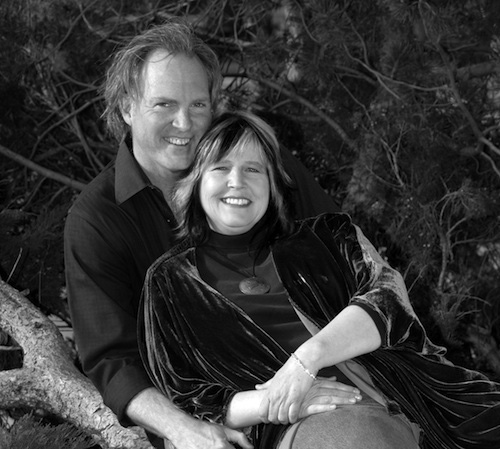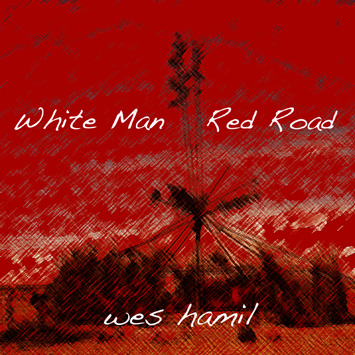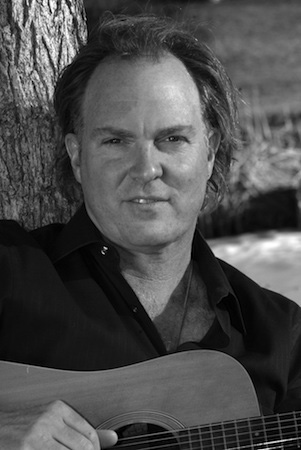About This Project: White Man Red Road
This project was created originally as a soundtrack to a manuscript I wrote which is also called White Man Red Road.
In 1992 I became apprenticed to an Elder who decided he would share with me ceremonies and traditions common to the Native American spiritual practices often referred to as the Red Road. Over the course of the next several years I participated in numerous ceremonies, went on several Vision Quests, and ultimately ended up SunDancing with another Elder/mentor in a Shoshone-Bannock led SunDance.
During the course of my apprenticeship, my original teacher asked me to commit to chronicling my experiences. With some trepidation I agreed, and then bound by the need to honor this commitment, finally wrote the manuscript for what has become White Man- Red Road. Example chapters of the text can be found at www.weshamil.com.
The title was a deliberate and carefully considered choice. There is much valid concern on the part of the Native American community regarding individuals who claim to be representing their Spiritual traditions and ceremonies and yet who are not of their community and culture. I make no such claim. What I do clearly and openly claim are the experiences I have had and what I have learned from practicing what I have been taught.
The Elders who shared with me deeply felt that the best way to heal the long standing mistrust and disaffection between their world and mine was to share, human to human, their spiritual practices in the hopes the greater power of human beings connecting on a spiritual level could eradicate misinformation, misbehavior and years of wasted opportunity between cultures. These were extremely brave people who risked the condemnation of their own culture in some instances to pursue their vision of a healing between peoples, and I feel honored to have been chosen to learn from them and equally committed to honor my pledge to convey my experience.
That is why the name White Man- Red Road. I want to make it abundantly clear what I am, where I have come from and the path I have walked. I have no desire to pretend to be something I am not. I represent no tribe, claim no spiritual mastery, and steadfastly honor what I have been taught, the way that I was taught it.
The Native People who I have shared my journey with over these many years have done nothing but encourage me to continue walking this good road in the way I have come to walk it. I have no intention of offending anyone, although I accept that it is often unavoidable where the territorial inclinations of Culture begin to blur across the lines of Spirit, which is everyone’s territory. To those who choose the role of the offended, I can only say that I remain true to my path, and I honor your feelings and opinion and pray that you Walk in Beauty. I cannot convince you of my intent, that decision lies between you and the Creator.
As I composed the manuscript, because I am foremost a musician rather than an author of prose, I decided I would enjoy creating a “soundtrack” for the book. So, with the blessings of my teachers, I began to take some of the ceremonial songs I had been taught and change them, moving them away from the melody and phrasings expressed in ceremony in order to honor the traditions of not recording sacred songs, and adapting them to my vision of a hybrid story song. These songs would convey the teachings I had been given, the prayers I had been led to experience, all with a blend of English words and ceremonial phrases.
The musical construction is all based on the simple 4/4 beat- the heartbeat- that I have found in the majority of prayer songs and dances I have attended and participated in. While the beats from song to song may be slightly embellished with some syncopation, at the heart of every song remains the heartbeat, the steady straight beat of a ceremonial drum, be it a large one, or a small one.
These songs were recorded with simple instruments, hand drums, acoustic guitars, bone rattles, like you might find anywhere. There has been minimal ornamentation and a deliberate intent to avoid more “new age” instrumentation, such as heavy synthesizers and digital processing. I have no quarrel with such production or recordings, in fact I have many of them and enjoy them, but the intent I had on this record was to keep things “close to the campfire”. In fact, much of this material was recorded on a small portable digital Roland VS880 recorder, some of it out on the very reservations I went to for ceremony, and some of the source songs I literally recorded around a fire.
When the project was done, or so I thought, I put it away and finished the rewriting of the text,which I also put away for various reasons. Some time later I made a handful of copies of the rough mixes and gave them to friends and fellow musicians. I began to get responses such as “I listen to this every morning”, and “Sometimes I just have to pull over to the side of the road and sit still until the entire CD is done”. Then, recently, I heard one of these rough mix tracks played on a syndicated radio show called The Colorado Wave. The music had taken a path of its own, apart from the manuscript.
I felt this was a direct request from the music, and the Road, for me to complete the music properly and release it as I had been asked so many times to do.
At this time I called a friend of many years and someone whom I had done much ceremony with to come in and help me sort out the tracks and do a proper final mix on the project. It was assembled in Logic and mixed in my little basement studio. Then I took it and had it mastered by Jonathan Pines at Private Studios in Urbana, Illinois. He did a great job pulling a record out of my little homemade project, as did my friend Justin with the mixes.
In the end, the performers on the project were Justin Walden on percussion and polishing the production in Logic with minimal affectation from the original tracks, my wife Victoria on vocals, and myself on guitars, bass, percussion and vocals. I will add that the spirit of many ceremonies must be credited with appearing on those tracks as well. My friend, Shoshone-Bannock SunDance Leader and Elder, Robert “Dude” Perry, reviewed all the ceremonial chants and phrases to insure I was not violating any sacred songs or conveying anything other than the good feeling that comes from these phrases.
So now that White Man Red Road the music project has grown its own road independent of the manuscript that prompted its creation, we will see where each of them winds up down Life’s trail. It is with great respect for the journey I have been privileged to travel, the Elders who have helped me, and to Creator who has inspired me that I offer this to listeners.
These songs are my original creations, and the only ceremonies they are meant to represent would be the ceremonies that they lead you to in your own heart.
I offer the prayer, the wish, and the hope that those whose hearts have ears for the Spirit in these songs will Walk In Beauty. It is a prayer I offer to all Life, and strive to find for myself. These songs reflect that search.......
May You Always Leave Beauty In Your Trail
Wes Hamil
What do the "Indian Words" mean in the songs?
II get this question alot, understandably. So I asked Robert "Dude" Perry, the Shoshone -Bannock Spiritual Elder that I SunDanced under to provide an English translation, if there was one.
His response was that the phrases that are used in these songs are common among numerous tribes and that they did not have a really specific English translation. He said that they are more like chants or phrases that are used to invoke a good feeling in the spirit of the person who is singing or chanting them.
I know Dude Perry to be a person of high integrity in these matters, and I was comfortable with his explanation about these phrases I had learned and incorporated into these new songs.
|


